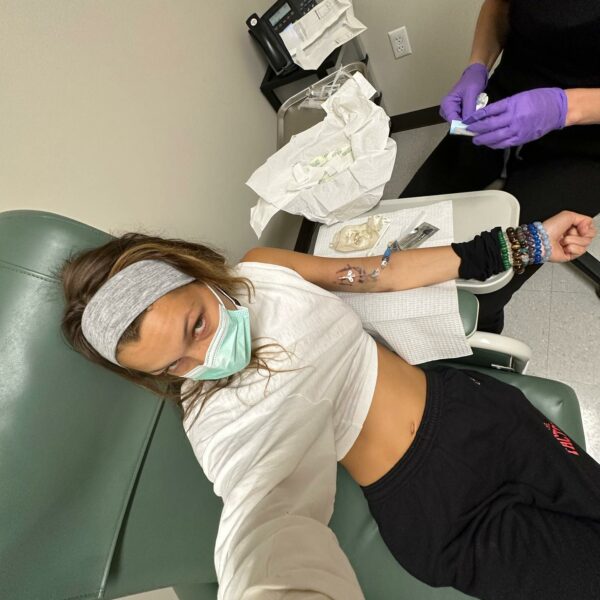Unfortunately, gaslighting isn’t limited to romantic relationships. Although your doctor is the last person you expect to not take you seriously, it happens frequently. So how can we care for our health while fearful of being labeled “dramatic” or worse, “difficult,” but our woman’s intuition is telling us not to f*ck around and find out?
Dr. Thaïs Aliabadi, board-certified OB-GYN and cohost of She MD podcast, is passionate about empowering women to take control of their health by becoming their own advocates.
“Women often experience delays in diagnosis and treatment for various medical conditions like breast cancer, heart disease, autoimmune diseases, PCOS, mental health disorders, endometriosis, and thyroid disorders. Consequently, women may endure prolonged periods without proper diagnosis and treatment, significantly impacting their health outcomes and quality of life,” she explains. For example, “Missed or delayed diagnosis in breast cancer can be anywhere around 20% to 30% of cases.”
Dr. Aliabadi cites “several reasons” symptoms are habitually overlooked in women by medical health professionals, such as historical biases, stereotypes about women’s health, and medical research that focuses primarily on men. She adds that uniquely feminine symptoms like menstrual pain are “often dismissed as normal for women.”
“Also, differences in how men and women present symptoms and communicate them can lead to misunderstandings.”
If you’re concerned your doctor might be overlooking your symptoms or isn’t giving them adequate attention, Dr. Aliabadi shares a few indicators to help determine if that’s the case. “A lack of thorough evaluation or testing, dismissing concerns without explanation, attributing symptoms solely to stress or psychological factors, and not providing a clear plan for further investigation or treatment,” are all red flags to watch out for.
“If you feel your symptoms are being minimized or not taken seriously, it’s important to advocate for yourself,” she continues, sharing five actionable tips all women can use to advocate for themselves at the doctor’s office.
Before your appointment, research your symptoms and potential conditions. Knowing your health concerns can help you ask informed questions and advocate for appropriate care.
Describe your symptoms in detail, including when they started, how often they occur, and any factors that worsen or improve them. Be straightforward about how your symptoms are affecting your daily life.
Don’t hesitate to ask your doctor to explain medical terms, treatment options, or potential side effects. Prepare a list of questions beforehand to ensure you cover all your concerns during the appointment.
If you feel your symptoms are not being adequately addressed, consider seeking a second opinion from another healthcare provider. Another perspective may offer new insights or treatment options.
Keep track of your symptoms and any changes in your condition. Follow up with your doctor if symptoms persist or worsen, and advocate for further evaluation or referrals to specialists if needed. Your persistence can play a crucial role in receiving the care you require.
Up next, be the first to know our weekly content and sign up for our Poosh newsletter.
The content provided in this article is provided for information purposes only and is not a substitute for professional advice and consultation, including professional medical advice and consultation; it is provided with the understanding that Poosh, LLC (“Poosh”) is not engaged in the provision or rendering of medical advice or services. The opinions and content included in the article are the views of the author only, and Poosh does not endorse or recommend any such content or information, or any product or service mentioned in the article. You understand and agree that Poosh shall not be liable for any claim, loss, or damage arising out of the use of, or reliance upon any content or information in the article.







































